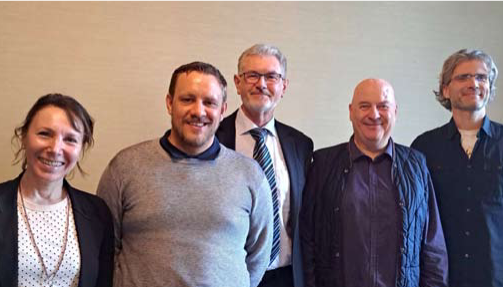TINNITUS
I have tinnitus – what can I do?
Any persistent tinnitus requires thorough medical clarification. In very few cases does this result in an organic cause of tinnitus, but all rare serious causes must be ruled out. It is important for you to know that tinnitus is not a sign of a threatening illness.
Can tinnitus be cured?
Acute tinnitus can disappear on its own. If treatment is started within a short period of time, the chance of recovery is said to be increased by around 20%. A permanent cure for chronic tinnitus in the sense of eliminating the tinnitus is not yet possible – neither through medication, nor through surgery or alternative healing methods, e.g. acupuncture. The alternative to this is tinnitus management, which will enable you to enjoy life again with your tinnitus.
Can the tinnitus become louder over time?
No. The loudness of the tinnitus is always between 5 and 15 decibels above the hearing threshold of the person affected. Certain amplifiers can make the ear noise appear louder in the subjective perception. These include: negative stress, fatigue, noise, back problems, jaw joint problems.
What does hyperacusis mean?
If someone reacts hypersensitively to even relatively quiet noises, this is known as hyperacusis. Like tinnitus, it is caused by disturbances in the central processing of sound signals. Noises that are perceived as too loud trigger vegetative symptoms: racing heart, sweating, panic, fear. Any existing ringing in the ears may be temporarily amplified.
What is tinnitus?
Tinnitus (ringing in the ears) is an acoustic perception without an external sound source. A distinction is made between – objective tinnitus – the sound source (e.g. blood flow in the case of vascular anomalies) is within the body and – subjective tinnitus – only the person affected can perceive the ringing in the ears, as there is no sound source.
What to do in case of acute tinnitus?
Keep calm and get a good night’s sleep. If the tinnitus is still present the next morning, you should see your GP or ORL doctor as soon as possible.
According to current knowledge, acute tinnitus is treated in the same way as sudden hearing loss. It makes sense to support the healing process through rest and relaxation. Your ORL doctor will also initiate diagnostics.
What to do with chronic tinnitus?
If the acute tinnitus does not disappear, it is referred to as chronic tinnitus. 90% of tinnitus sufferers can live well with their tinnitus. Treatment is not necessary.
Only if your ringing in the ears significantly impairs your quality of life is treatment in the sense of individual tinnitus management necessary. The aim is to be able to enjoy your work and family life again with your tinnitus.
Through education and self-help, tinnitus loses its effect. The STL self-help groups and treatment teams consisting of ORL physicians, psychotherapists, hearing therapists and hearing aid acousticians will support you. For addresses, please contact the STL.
What are the causes of tinnitus?
The causes of subjective ringing in the ears are still unknown. Tinnitus can be triggered by constant or sudden exposure to noise, a sudden loss of hearing, viral diseases or Ménière’s disease. Stress is often the trigger for tinnitus. Tinnitus is rarely a symptom of an organic disorder of the central auditory pathway. Problems with the cervical spine or in the dental-jaw area can be triggering or aggravating causes.
How do you find out which treatment or aid is right for you?
Do not try to wander from doctor to doctor and from therapist to therapist in the hope of finding someone who can take away your tinnitus. No two cases of tinnitus are the same. That’s why there is no one-size-fits-all treatment, let alone a medication that is generally effective for tinnitus. Of the countless proposed treatment methods, there are individual reports of success, but no medical or non-medical treatment method can claim to be effective for all tinnitus sufferers.
How is hyperacusis treated?
As with chronic tinnitus, treatment is carried out as coping therapy – with one difference: sounds, for example when adjusting noise generators or in hearing therapy, are dosed much more carefully. However, the patient should only use hearing protection in noisy situations.
After just a few months, most of those affected are able to expose themselves to normal environmental sounds again and even attend a concert.

